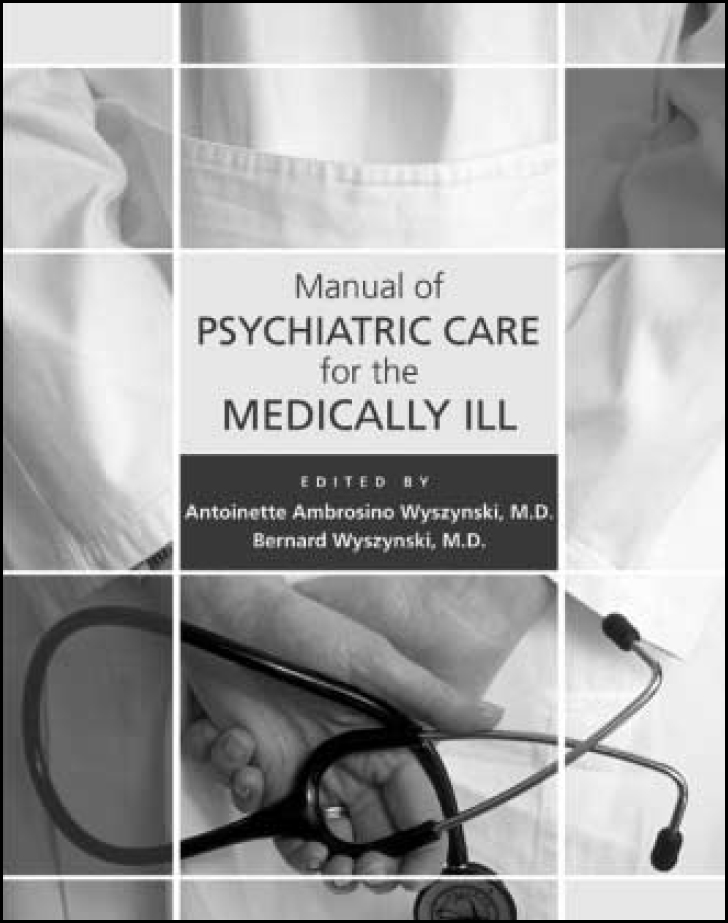
This is a good book. Don't be deterred by the flimsy cover and coil binding, which I viewed with great sceptism on its arrival. It seemed an unlikely candidate to survive the rigours of life chez Garden. However, soon the advantages of the design become apparent; it is very compact and pages with useful scales and instruments could be reproduced with ease (subject to copyright). You can find your way around. The logical structure, with largely predictable and systematic coverage of different systems, is an advantage both for psychiatrists with limited medical knowledge and for physicians with little mental health experience.
It is indeed a manual. In each section there is a useful clinical summary of conditions described. It combines basic background medical information, summaries of psychiatric aspects of conditions with practical ‘how do I…?’ questions about psychotropic medication, and relevant scales, their uses and limitations in each clinical setting. Inclusion of a section on obstetric patients, for whom rapid, relevant and safe response may be crucial, is particularly useful for psychiatrists without the luxury of a perinatal mental health service. The section on capacity is a timely bonus for UK practitioners, since objective assessment of capacity will become highly topical when the Incapacity Act comes into force.
However, the book does have limitations for the UK reader. There is information about drugs that are unavailable in the UK, and the use of many abbreviations unfamiliar to the non-US practitioner requires the reader to make frequent reference to the key. Furthermore, several important subjects are not covered. For example, medically unexplained symptoms, particularly topical in British liaison psychiatry, are addressed by system rather than as a collective problem, and relevant psychotherapeutic interventions, such as reattribution, receive little if any mention. In addition, the emphasis is on medical rather than psychotherapeutic intervention, perhaps reflecting differences in practice on either side of the Atlantic. It is notable that the chapter addressing psychological issues in medical patients is only three pages long. To be fair, the editors acknowledge these omissions and others in the preface.
Two chapters deserve a special mention: that on dealing with spiritual matters, and the epilogue ‘The physician as a comforter’. I think these chapters reflect that the book has been written for practitioners at the ‘coalface’, who are asked regularly about issues associated with dying, about the veracity of belief systems, be they religious or otherwise, and may have their own belief systems challenged by this work. Here, the book departs from being a manual, but perhaps fittingly so, since it reminds clinicians that however expert their knowledge, medical management and monitoring, their care is incomplete without consideration and respect for their patients' feelings and beliefs.



eLetters
No eLetters have been published for this article.